Recent Blog Posts
Behind on Medical Bills? Chapter 7 Could Offer Relief
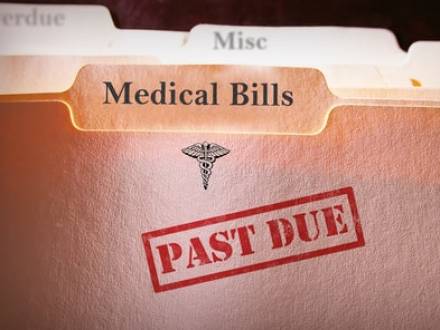 Medical debt is one of the leading causes of financial troubles in North Carolina and across the United States. Whether due to a sudden emergency, a chronic or severe illness, gaps in insurance, or high deductibles, overwhelming medical bills can quickly spiral out of control. With more than 100 million Americans owing $220 billion in medical debt, it is estimated that at least 66 percent of those who file for bankruptcy cite medical debt as the primary cause.
Medical debt is one of the leading causes of financial troubles in North Carolina and across the United States. Whether due to a sudden emergency, a chronic or severe illness, gaps in insurance, or high deductibles, overwhelming medical bills can quickly spiral out of control. With more than 100 million Americans owing $220 billion in medical debt, it is estimated that at least 66 percent of those who file for bankruptcy cite medical debt as the primary cause.
Discharging your medical debt through Chapter 7 bankruptcy could provide relief and give you a fresh start. Consulting with an experienced Charlotte, NC bankruptcy attorney can provide you with the answers you need to help determine whether filing for Chapter 7 bankruptcy is the right choice for you.
What Debts Can be Discharged in Chapter 7 Bankruptcy?
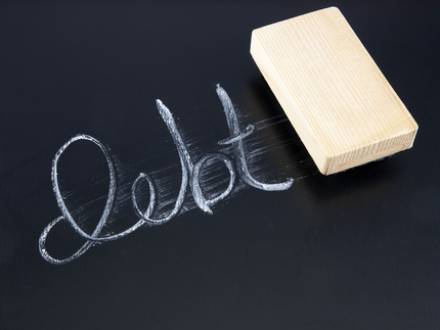 Perhaps you amassed too much credit card debt as a result of youthful indiscretion, or incurred a large and sudden medical debt after an unexpected health scare. You may have lost a job and suffered financial consequences. Whatever the reason, bankruptcy erases many debts and provides a financial fresh start.
Perhaps you amassed too much credit card debt as a result of youthful indiscretion, or incurred a large and sudden medical debt after an unexpected health scare. You may have lost a job and suffered financial consequences. Whatever the reason, bankruptcy erases many debts and provides a financial fresh start.
In Chapter 7 bankruptcy specifically, many of your debts will be discharged, meaning that you will no longer be responsible for paying for them. An experienced Mecklenburg County, NC Chapter 7 bankruptcy attorney can review your case to advise you on the debts that would be dischargeable in bankruptcy.
Do You Need to Have a Certain Amount of Debt to File for Chapter 7 Bankruptcy?
There is no minimum debt requirement to file for Chapter 7 bankruptcy. However, while Chapter 7 can be an opportunity to get your finances in order, it has its downsides. It can affect your credit score, you may have to give up certain assets, and you can only file Chapter 7 every eight years. For these reasons, it is recommended that you only take advantage of this process if you have a significant amount of debt.
Should You Surrender Your Property in Chapter 7 Bankruptcy?
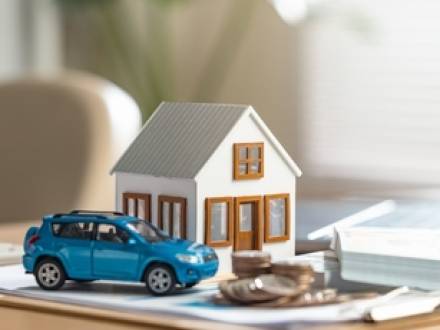 If you are filing for bankruptcy, you are doing so in all likelihood because you have a great deal of debt and need a financial fresh start. You may also be concerned that your financial troubles could cause you to lose your car or home. Indeed, many people turn to bankruptcy to keep these assets. So it may surprise you to hear that there are situations in which it might make sense to give up an asset or surrender it in bankruptcy. When does it make sense to give up your car or home in bankruptcy? This is a complex question that is very dependent on your particular circumstances, but an experienced Charlotte, NC Chapter 7 bankruptcy attorney can advise you on whether surrendering certain assets in bankruptcy is the right decision for you.
If you are filing for bankruptcy, you are doing so in all likelihood because you have a great deal of debt and need a financial fresh start. You may also be concerned that your financial troubles could cause you to lose your car or home. Indeed, many people turn to bankruptcy to keep these assets. So it may surprise you to hear that there are situations in which it might make sense to give up an asset or surrender it in bankruptcy. When does it make sense to give up your car or home in bankruptcy? This is a complex question that is very dependent on your particular circumstances, but an experienced Charlotte, NC Chapter 7 bankruptcy attorney can advise you on whether surrendering certain assets in bankruptcy is the right decision for you.
What Happens to Your Secured Versus Unsecured Debt in Chapter 7?
Chapter 7 bankruptcy treats secured and unsecured debt very differently. Unsecured debt, like your credit card or medical debt, is usually discharged or erased in bankruptcy. Secured debt refers to debt on property that is secured by collateral–the asset itself. This includes things such as car loans, mortgages, and loans on various appliances. With secured debt, you are liable for both the loan and the lien that attaches to the property. In bankruptcy, your liability for the debt is discharged, but the creditor can still recover on the lien. That means that you must continue to pay for that debt or risk losing the asset, even in bankruptcy.
Can A Creditor Refuse to Erase My Debt in Chapter 7?
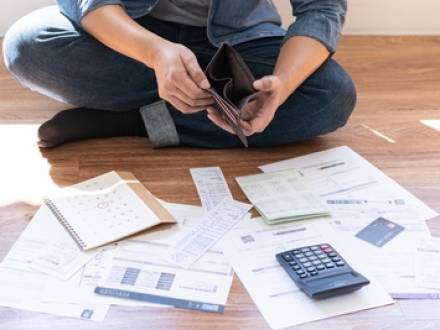 People turn to bankruptcy because they find themselves burdened by overwhelming debt and seek the financial fresh start that Chapter 7 bankruptcy can provide. In some cases, however, a creditor can refuse to erase a specific debt or may refuse to discharge all of the debtor’s debt in the bankruptcy proceeding.
People turn to bankruptcy because they find themselves burdened by overwhelming debt and seek the financial fresh start that Chapter 7 bankruptcy can provide. In some cases, however, a creditor can refuse to erase a specific debt or may refuse to discharge all of the debtor’s debt in the bankruptcy proceeding.
To do so, the creditor must go through a legal process in the bankruptcy court; the creditor cannot simply decide not to wipe out a debt. An experienced Mecklenburg, NC Chapter 7 bankruptcy attorney is here to safeguard debtor’s rights in bankruptcy court and protect them from a creditor’s refusal to discharge debt.
When Can a Creditor Object to the Discharge of a Debt?
There are a few common reasons why a creditor might object to the discharge of a specific debt:
Should You Negotiate a Repayment of Your Credit Card Debt?
 Americans have a great deal of credit card debt – over $1.21 trillion in total as of February 2025. We use credit cards for nearly every financial transaction, and credit cards are only becoming more commonplace, not less. Given the often high interest rates on credit cards, it is not surprising then that we have so much credit card debt.
Americans have a great deal of credit card debt – over $1.21 trillion in total as of February 2025. We use credit cards for nearly every financial transaction, and credit cards are only becoming more commonplace, not less. Given the often high interest rates on credit cards, it is not surprising then that we have so much credit card debt.
However, it is not necessary to live with overwhelming credit card debt. There are options to manage or even get rid of credit card debt. Besides bankruptcy, it is possible in some cases to negotiate a debt repayment, also called a debt settlement. An experienced Charlotte, NC credit card debt attorney advises clients on whether negotiating a debt settlement is right for them.
How Do You Negotiate a Credit Card Debt Settlement?
If you have struggled to pay your credit card debt on time and have amassed more credit card debt than you can manage, you may try to negotiate a debt settlement with your credit card company. When you negotiate a debt settlement, you agree to pay a smaller amount than you owe in a one-time payment in exchange for the credit card company erasing the rest of your debt.
Using Deductions to Pass the Chapter 7 Means Test
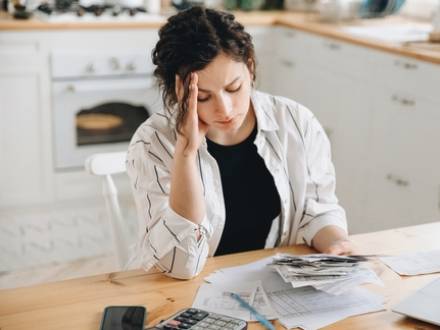 If you have decided to file for Chapter 7 bankruptcy, or even if you are just considering filing for bankruptcy, you may be wondering whether there are eligibility requirements, and if so, what they are. To file for Chapter 7 bankruptcy, you must pass the "means test." which calculates your monthly income.
If you have decided to file for Chapter 7 bankruptcy, or even if you are just considering filing for bankruptcy, you may be wondering whether there are eligibility requirements, and if so, what they are. To file for Chapter 7 bankruptcy, you must pass the "means test." which calculates your monthly income.
The results of the means test must show that your gross income is below bankruptcy income limits. However, even if you do not at first pass the means test and your income is higher than the allowed income, you can still qualify for Chapter 7 by deducting the cost of certain allowed expenses. An experienced North Carolina Chapter 7 bankruptcy attorney can help you find out if you qualify for Chapter 7 bankruptcy.
How Do You Pass the Chapter 7 Means Test?
Unless you are exempt from the means test (for example, if you owe more business debt than personal debt or qualify based on your military status), you must pass the means test. To do so, you will calculate your average monthly income for the last six months as instructed on the bankruptcy means test form. If the number is below the median income for your household size in North Carolina, you have passed the Chapter 7 means test and qualify to wipe out your debt via Chapter 7 bankruptcy.
Common Fair Credit Reporting Act Violations
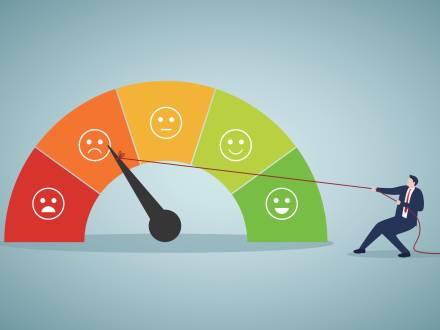 The old saying that "cash is king" may be true. Nevertheless, it is your credit score that arguably has the most significant impact on your financial opportunities. Calculated based on information on your credit report, your credit score can affect everything from your ability to rent an apartment to your power to purchase a home or car.
The old saying that "cash is king" may be true. Nevertheless, it is your credit score that arguably has the most significant impact on your financial opportunities. Calculated based on information on your credit report, your credit score can affect everything from your ability to rent an apartment to your power to purchase a home or car.
That is why any mistake on a credit report can have serious repercussions on your life. The role of the Fair Credit Reporting Act (FCRA) is to protect you from any false or mistaken information on your credit report. If there are issues with your credit report, an experienced North Carolina bankruptcy attorney can advise you on the ways the FCRA can protect you.
What Is the FCRA?
The FCRA is a federal law that protects the information collected by the credit reporting agencies (also called credit bureaus) that compile your credit history. It governs how the credit bureaus may collect and access your information. Its goal is to ensure the accuracy, fairness, and privacy of the personal information the credit bureaus collect.
What Happens to Your Personal Assets in a Small Business Bankruptcy?
 If your small business is struggling, you may be wondering whether filing bankruptcy is the right option for you. Specifically, you may be concerned about whether filing for bankruptcy as a small business will affect your personal assets. This is a valid question, and the answer generally depends on how your business is structured and whether you personally guaranteed any payments. An experienced Charlotte, NC small business bankruptcy attorney can offer guidance tailored to your specific situation.
If your small business is struggling, you may be wondering whether filing bankruptcy is the right option for you. Specifically, you may be concerned about whether filing for bankruptcy as a small business will affect your personal assets. This is a valid question, and the answer generally depends on how your business is structured and whether you personally guaranteed any payments. An experienced Charlotte, NC small business bankruptcy attorney can offer guidance tailored to your specific situation.
How Does Your Business’s Organizational Structure Impact Your Personal Liability?
Sole Proprietorship
If you have structured your business as a sole proprietorship, your personal assets may be affected. With sole proprietorship, there is no legal distinction between business and personal assets.
How Can I Rebuild Credit After Bankruptcy?
 For some people who are struggling with debt, bankruptcy can be a financial cure that offers a new start. However, this comes at a cost. One of the biggest drawbacks of filing bankruptcy is that it has a major negative impact on the filer’s credit. It can take years to repair your credit after you file bankruptcy, and you may experience difficulty obtaining loans during that time.
For some people who are struggling with debt, bankruptcy can be a financial cure that offers a new start. However, this comes at a cost. One of the biggest drawbacks of filing bankruptcy is that it has a major negative impact on the filer’s credit. It can take years to repair your credit after you file bankruptcy, and you may experience difficulty obtaining loans during that time.
Rebuilding your credit after a bankruptcy discharge is a necessary first step to getting your financial life back on track. While it will not happen overnight, there are certain actions you can take to get a head start and speed up the process. Consult a North Carolina bankruptcy attorney who can guide you through bankruptcy and life afterward.
How Does Bankruptcy Affect My Credit?
If you are considering filing for bankruptcy, it is important to understand how it can impact your credit. This impact depends on which bankruptcy you file:
What Types of Debt Are Covered by the Fair Debt Practices Act?
 American consumers hold almost $18 trillion in debt, with the average household owing about $104,215. Most of this is mortgage debt, followed by credit card and auto loan debt. These figures suggest that consumers are saddled with serious financial obligations that many of them might not be able to meet. The creditors who own this debt, like banks and credit card companies, use a variety of methods to try to collect payment for their claims.
American consumers hold almost $18 trillion in debt, with the average household owing about $104,215. Most of this is mortgage debt, followed by credit card and auto loan debt. These figures suggest that consumers are saddled with serious financial obligations that many of them might not be able to meet. The creditors who own this debt, like banks and credit card companies, use a variety of methods to try to collect payment for their claims.
The Fair Debt Collection Practices Act (FDCPA) places a limit on these methods, as this article will discuss. For more details and to learn about your rights under the FDCPA, contact a North Carolina Fair Debt Collection Practices Act attorney.
What Is the Fair Debt Collection Practices Act?
Creditors like mortgage lenders and credit card companies often do not have the time or resources to collect debt themselves, so they outsource the job to professional debt collectors. The Fair Debt Collection Practices Act (FDCPA) is part of the federal Consumer Credit Protection Act and offers a level of protection for consumers from debt collection companies. It prohibits them from engaging in certain practices in the process of trying to recover payments. Prohibited activities include:


 704-BLOSSOM
704-BLOSSOM

